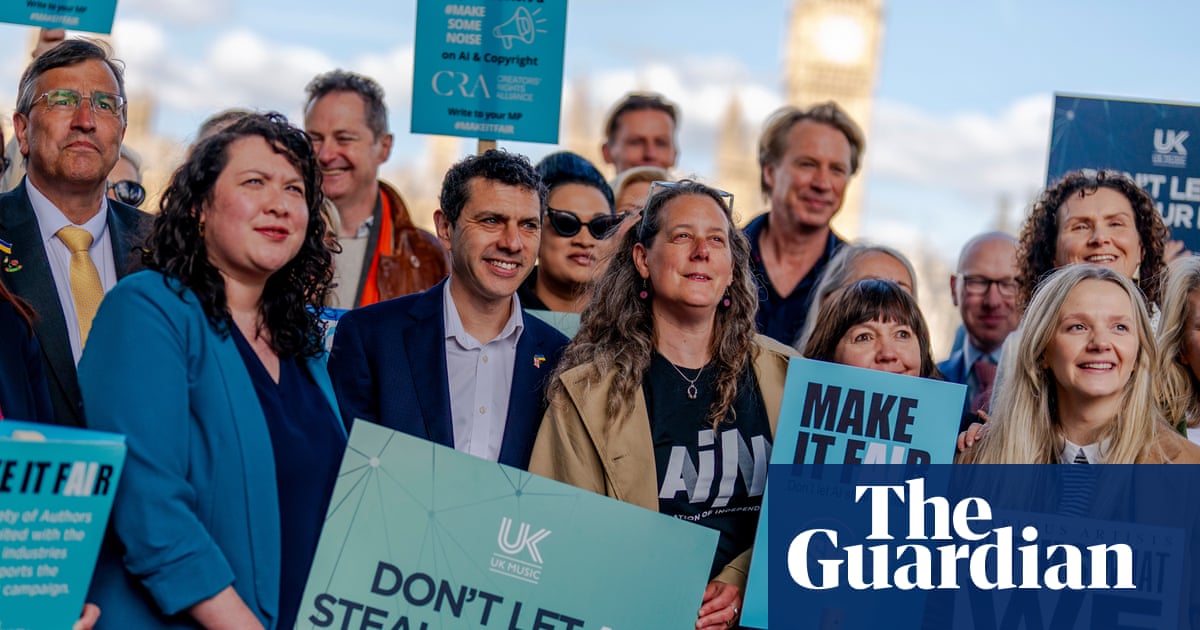Ministers have offered a series of last-minute concessions on copyright protections in an effort to avoid a fifth defeat in theHouse of Lordswhich could threaten the progress of a key bill.
The data bill faces the prospect of being shelved amid atense standoffover plans to allowAI companiesto use copyrighted material to train their models. In a letter to all peers late on Tuesday night, the government offered further concessions in an effort to stave off another defeat.
Maggie Jones, the Lords minister for the digital economy and online safety, said the government would commit to publishing further technical reports on the future of AI and copyright regulation and do so within nine months instead of 12.
Jones wrote that ministers intended to move as quickly as possible in this important area and that the amendments would be laid on Wednesday afternoon.
“A number of noble Lords have voiced concerns during ping-pong that the government is not listening. This is simply not the case,” she said, reiterating that ministers regretted the way they had gone about the changes.
Jones stressed that the data bill was expected to generate £10bn of economic benefit by updating data protection law and that it would improve online safety, including by strengthening powers to ask social media companies to preserve data following the death of a child.
The bill has been used byBeeban Kidron, the award-winning film director and cross-bench peer, as a vehicle to oppose the government’s proposed changes to copyright law. The government’s concessions are intended to fulfil changes requested by Kidron.
Kidron is preparing to table another amendment to the bill on Wednesday morning. If she puts forward the same amendment which the Commons stripped out of the bill on Tuesday, and the Lords vote for it, it would put parliament in double insistence territory.
This means the Commons and Lords cannot reach agreement over legislation. In this scenario, under parliamentary convention, the bill would fall unless ministers accept the rebel amendment. This is extremely rare but not without precedent – it happened to the European Parliamentary Elections Bill 1997–98 – and the government could find potential ways to avoid it.
Kidron said: “It is in the gift of the government to accept the amendment, or put something meaningful in its place. They have failed to listen to the Lords, they have failed to listen to the creative sector, they have failed to listen to their own backbenchers.
“I have always been willing to find a route through this, but you have to ask why they feel unable to protect UK interests, and why they are giving away the country’s riches and jobs, without ensuring they have the regulatory tools necessary to negotiate a settlement. Ministers keep saying fair: what is not fair is letting one sector steal from another.”
Under the government’s proposals, AI companies would be allowed to train their models using copyrighted work without permission unless the owner opts out. The plans have beenfiercely criticised by creators and publishersincluding high-profile artists such as Paul McCartney and Tom Stoppard.
The Lords dealt a fourth defeat to the government on Monday night, with peers voting 242 to 116 to a change that would introduce transparency requirements to force AI companies to publish how they are training their models.
Peter Kyle, the technology secretary, has saidhe regretted the decisionto launch a consultation on changing copyright law with the opt-out system as the “preferred option”. Campaigners against the changes believe that there is resistance inside Downing Street to making more substantial concessions.
